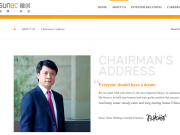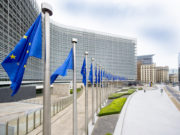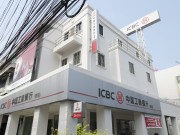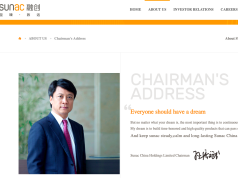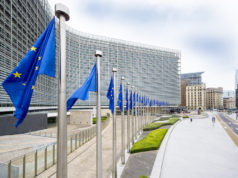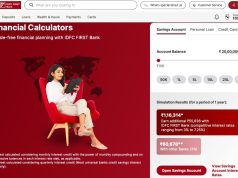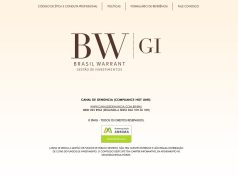Singapore MAS Launches Financial Services Industry Transformation Map 2025: Philanthropy Hub for Wealth Management, Enhance VCC & Fund Structures, Private Credit to Complement Private Equity & Venture Capital
16th September 2022 | Singapore
Singapore central bank Monetary Authority of Singapore (MAS) has launched a new Financial Services Industry Transformation Map 2025 (ITM), with key focuses on Philanthropy hub for Wealth Management, enhancing VCC (Variable Capital Company ) & fund structures, and developing Private Credit to complement Private Equity & Venture Capital. The new Financial Services Industry Transformation Map 2025 (ITM) has 5 key strategies: 1. Enhance Asset Class Strengths; 2. Digitalise Financial Infrastructure; 3. Catalyse Asia’s Net-Zero Transition; 4. Shape the Future of Financial Networks; 5. Foster a Skilled and Adaptable Workforce. See below for Financial Services Industry Transformation Map 2025.
“ Philanthropy Hub for Wealth Management, Enhance VCC & Fund Structures, Private Credit to Complement Private Equity & Venture Capital “
Singapore MAS Launches Financial Services Industry Transformation Map 2025

15th Sept 2022: Mr Lawrence Wong, Deputy Prime Minister and Minster for Finance, and Monetary Authority of Singapore (MAS) Deputy Chairman, launched the Financial Services Industry Transformation Map (ITM) 2025 today. The ITM 2025 lays out the growth strategies to further develop Singapore as a leading international financial centre in Asia – to connect global markets, support Asia’s development, and serve Singapore’s economy. MAS projects the financial sector to grow by an average 4% to 5% per annum during 2021 – 2025 and create 3,000 – 4,000 net jobs on average each year.
The ITM comprises five key strategies:
- Enhance Asset Class Strengths;
- Digitalise Financial Infrastructure;
- Catalyse Asia’s Net-Zero Transition;
- Shape the Future of Financial Networks; and
- Foster a Skilled and Adaptable Workforce.
Enhance Asset Class Strengths
MAS will work with the financial industry to deepen capabilities in asset classes in which Singapore plays a key regional or global role.
a. Foreign exchange – Broaden and deepen the electronic foreign exchange (FX) trading ecosystem by anchoring more FX platforms and liquidity takers.
b. Insurance – Catalyse insurance risk advisory and alternative risk transfer solutions for Asia, to address pandemic, climate, and cyber risks, and facilitate the participation of capital markets in risk financing.
c. Wealth management – Become Asia’s centre for philanthropy through building impact monitoring solutions, philanthropy advisory competencies, and innovative philanthropy models.
d. Asset management – Enhance the Variable Capital Company regime and other fund structures to cater to broader industry needs.
e. Private capital markets – Develop private credit to complement private equity and venture capital funding.
f. FinTech – Anchor promising FinTech start-ups in areas like Web 3.0, artificial intelligence, and green FinTech.
Digitalise Financial Infrastructure
MAS will promote the development of digital infrastructure and platforms.
a. Bond market infrastructure – Improve end-to-end efficiency in primary bond issuances, listing and settlement processes, and strengthen Singapore’s proposition as a bond issuance and listing venue of choice.
b. Funds settlement utility – Develop an industry funds settlement utility to centralise subscription, redemption, record-keeping workflows, and facilitate reconciliation of fund data flows, thereby reducing settlement time and improving efficiency.
c. SME trade discovery platform (Business-sans-Borders) – Launch a digital platform to connect small and medium enterprises (SMEs) across growth regions. This facilitates trade discovery and enables easier access to trade financing for participating SMEs.
Catalyse Asia’s Net-Zero Transition
To catalyse Asia’s transition towards net-zero, MAS is working with the industry to develop innovative solutions to scale up sustainable and transition financing.
a. Provide greater clarity on transition activities including through the development of an industry-led taxonomy for eight priority sectors.
b. Facilitate the decarbonisation of real economy sectors through appropriate financing solutions for corporates.
c. Enhance sustainability disclosures and build data utilities, such as Project GreenPrint, to facilitate companies’ sustainability disclosures and investors’ access to companies’ ESG data.
d. Provide S$100 million grant funding over 2021 – 2025 for capability building, green FinTech, climate risk and reinsurance, and solutions for sustainable and transition finance.
Shape the Future of Financial Networks
MAS aims to enhance payments connectivity and build an innovative and responsible digital asset ecosystem.
a. Expand cross-border payment linkages with regional economies (e.g. real-time payment linkages, Project NexusProject Nexus is a blueprint that outlines how countries can fully integrate their retail payment systems onto a single cross-border network.).
b. Explore potential of distributed ledger technology in promising use cases (e.g. cross-border payments, trade finance, and capital markets).
c. Support tokenisation of financial and real economy assets (e.g. Project GuardianProject Guardian is a collaborative initiative with the financial services sector that seeks to explore the economic potential and value-adding use cases of asset tokenisation.).
d. Enable digital currency connectivity (e.g. Project OrchidProject Orchid aims to build the technology infrastructure and capabilities necessary to issue a digital Singapore dollar, should MAS decide to do so in the future.).
Foster a Skilled and Adaptable Workforce
MAS and the Institute of Banking & Finance (IBF) will work closely with the financial industry and tripartite partners to foster a strong workforce.
The Financial Sector Development Fund will provide S$400 million grant funding to the Talent and Leaders in Finance programme over 2021 – 2025 to enable industry professionals to take up good jobs and advance in their careers.
a. Build workforce competencies in growth areas and provide training support for finance professionals at different stages of their careers.
b. Develop specialist talent in areas such as sustainability and technology.
c. Develop leaders through opportunities to acquire expertise, international exposure, and networks to help them succeed in their leadership roles.
ITM 2016 – 2020
As one of the 23 sectors identified by the Committee of the Future Economy, the Financial Services ITM was first launched in 2017 with a strong focus on innovation and technology adoption and developing a world-class workforce. From 2016 to 2020, the financial services sector grew by an average of 5.7% per annum, exceeding the target of 4.3% per annum. The sector created an average of 4,100 net jobs each year, higher than the target of 3,000 net jobs per annum.
Sign Up / Register
Caproasia Users
- Manage $20 million to $3 billion of assets
- Invest $3 million to $300 million
- Advise institutions, billionaires, UHNWs & HNWs
Caproasia Platforms | 11,000 Investors & Advisors
- Caproasia.com
- Caproasia Access
- Caproasia Events
- The Financial Centre | Find Services
- Membership
- Family Office Circle
- Professional Investor Circle
- Investor Relations Network
Monthly Roundtable & Networking
Family Office Programs
The 2025 Investment Day
- March - Hong Kong
- March - Singapore
- July - Hong Kong
- July - Singapore
- Sept- Hong Kong
- Sept - Singapore
- Oct- Hong Kong
- Nov - Singapore
- Visit: The Investment Day | Register: Click here
Caproasia Summits
- The Institutional Investor Summit
- The Investment / Alternatives Summit
- The Private Wealth Summit
- The Family Office Summit
- The CEO & Entrepreneur Summit
- The Capital Markets Summit
- The ESG / Sustainable Investment Summit


